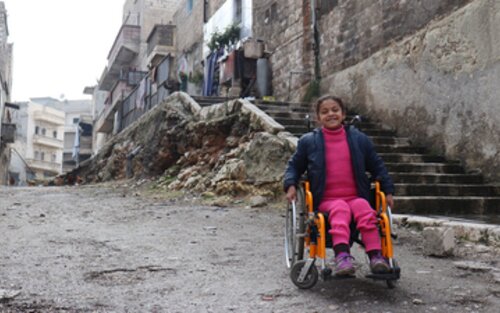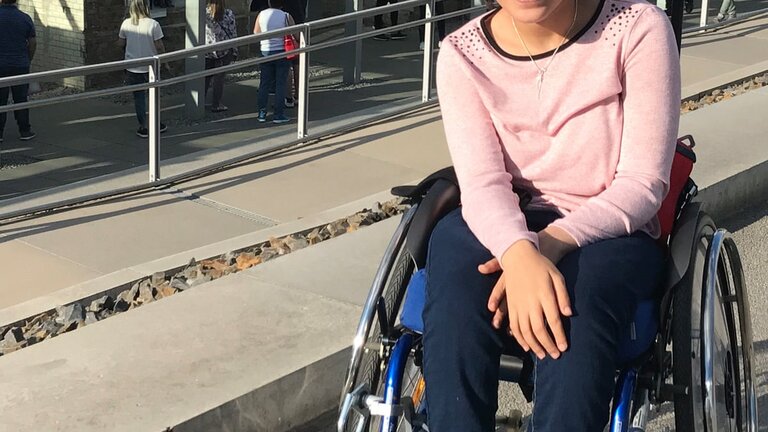Syrian Disability Defender Calls for Protection of PWDs in War Torn Regions
Disability and refugee rights defender Nujeen Mustafa has called on the UN, governments, donors, and humanitarian organizations to do more to protect people with disabilities in Syria and other places where there is war or a humanitarian crisis.

While addressing the 13th session of the Conference of States Parties to the Convention on the Rights of Persons with Disabilities, Mustafa called the UN and governments to move beyond mere platitudes to delivering meaningful action on the ground.
The 16-year-old who was born with cerebral palsy and uses a wheelchair urged them to consider the particular needs of persons with disabilities in humanitarian response as per Resolution 2475, which can only be done through targeted funding.

Mustafa was referring to the resolution that was adopted by the United Nations Security Council last year, committing to protect persons with disabilities.
The resolution, which the United Nations Security Council unanimously adopted in June 2019, is the first dedicated entirely to the impact of armed conflict on people with disabilities. It passed after an April 2019 briefing by Mustafa, the first person with a disability to brief the Security Council.
Among its many agendas, the resolution emphasizes the need for States to end impunity for criminal acts against civilians, including those with disabilities, and to ensure that such persons have access to justice and effective remedies and, as appropriate, reparation.
At the same time, she called for data collection saying without it, persons with disabilities will continue being invisible.
“This is a pattern that I have noticed when it comes to the protection of other groups – like women and children, is that they are always reported on, but that is not the case when it comes to people with disabilities.
“The UN system needs to do better to systematically collect data, monitor, and report on people with disabilities,” she said.
The 16-year-old expressed her disappointment, saying nothing had changed for the people in Syria, a year after the resolution was passed.
“I hoped that my briefing would be a wake-up call for the international community, including the UN, to recognize the lack of protection for us, people with disabilities…….Since then, I have become disappointed. This is because, from what I see, nothing has practically changed for people with disabilities in Syria and other places where there is war or a humanitarian crisis,” she said.
She said protection during armed conflicts and access to essential necessities is the rights of persons with disabilities, adding that it is not a favor that they are asking for. “More needs to be done to change things on the ground for us,” she said.
Mustafa was born in Syria but fled to Germany in her wheelchair alongside her older sister to start a new life.
According to Human Rights Watch, Resolution 2475 is a groundbreaking document that calls for the protection of people with disabilities, including them in decisions regarding humanitarian action and peacebuilding efforts and increasing data collection to better understand their experiences.
The lobby group however says that the implementation of the resolution has been slow.
“Lack of action on the ground, including by the UN, has continued to leave people with disabilities disproportionally impacted and largely invisible.”
Margaret Njugunah
